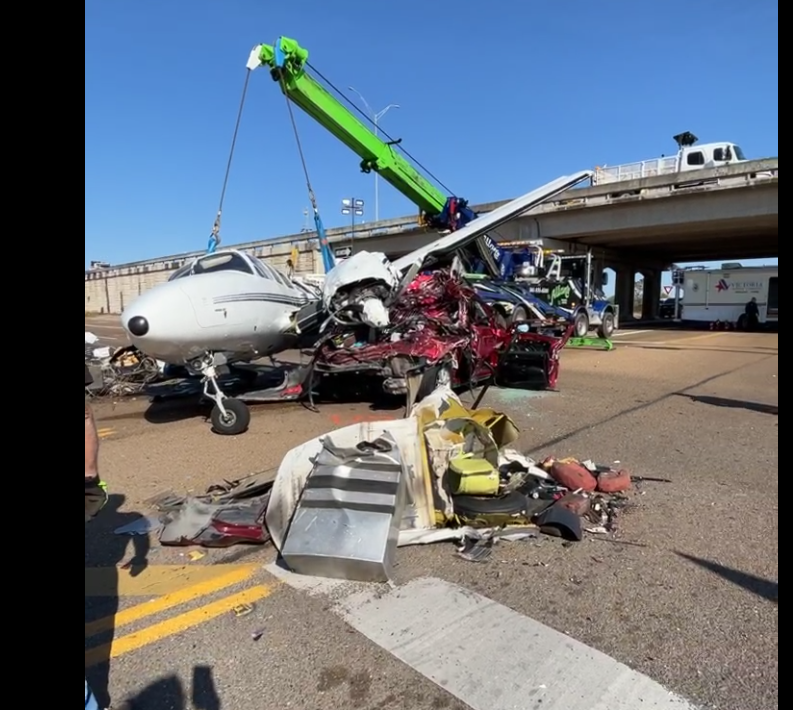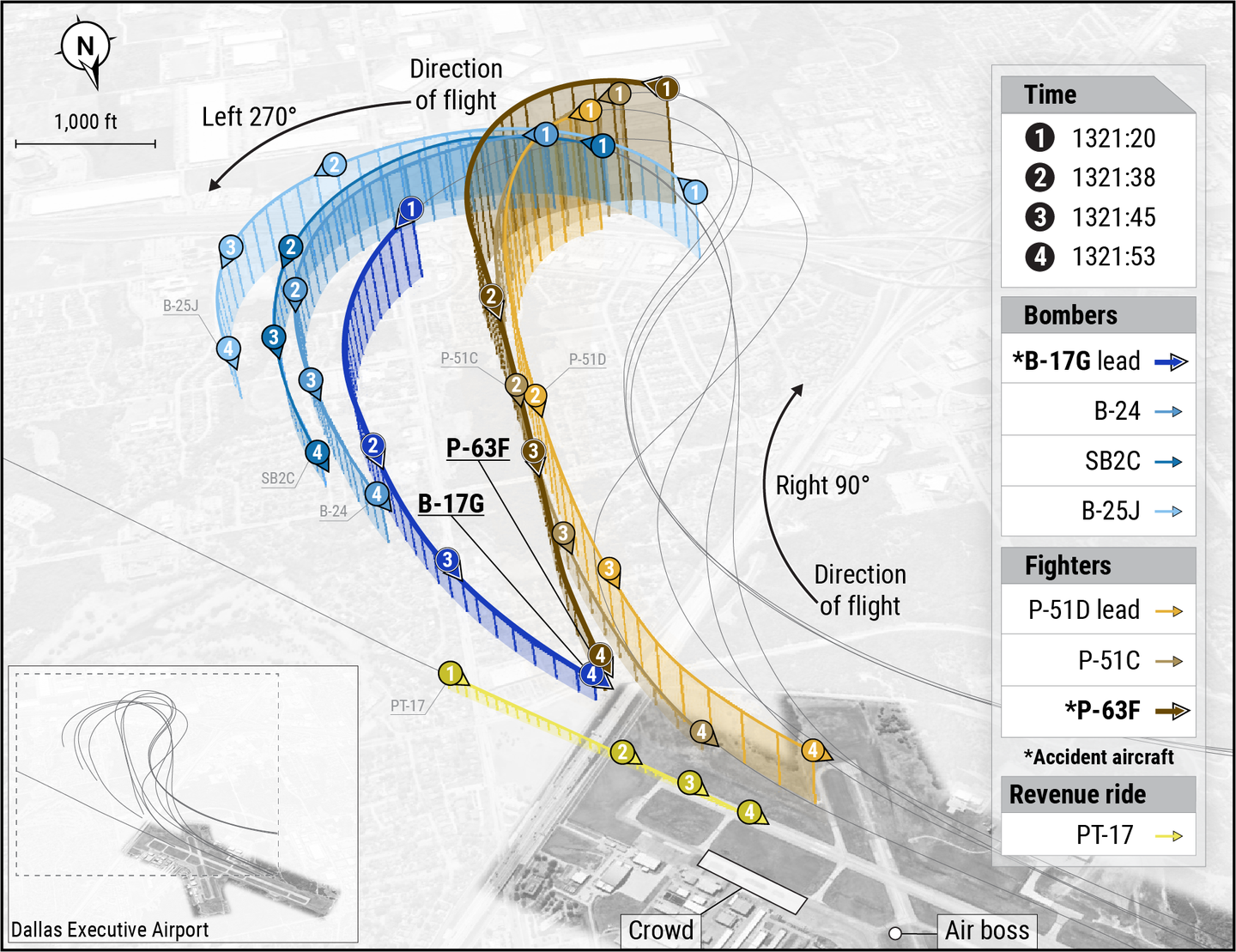What Does a Pilot Look Like?
Although it’s not uncommon to see a female pilot on the flight deck, the front office is hardly representative of the gender and racial diversity of the U.S. York College students in New York are out to change that. The current class in the college’s Aviation Institute is 60 percent female, and most of the aspiring pilots are women of color. Alice Speri takes a look at the program and the students.
Growing up, Daysi Manzano always had to compete with guys."I remember boys saying, you can't do it, you're a girl," she said. "That's why I decided to go into mechanical engineering."Manzano is now a senior at York College's Aviation Institute and president of the school's Women in Aviation chapter. While she might be a minority in the industry, which is dominated by men, she is part of the majority at the institute, which is set to graduate its first class in May. Of the 87 students enrolled, 60 percent are female.Women have flocked to the institute since it opened in 2003. Established with a $1 million grant from the Port Authority of New York and New Jersey, the program is the only one of its kind in New York City. Its enrolment reflects an ongoing transformation in a field dominated by white males.Last September, for instance, Susan Baer became the first female director of the Port Authority, the world's largest airport system. Her success has inspired the York students, who met her at a Women in Aviation conference in Atlanta last winter.Women at the institute said they are especially drawn to the allure of breaking through gender boundaries. A 2007 Federal Aviation Administration report found women make up six percent of the pilots in the country and 20 percent of the entire aviation industry.Women know this is a male-dominated field and are not scared, York's Director of Management Michel Hodge said."They relish in the challenge," he said.This challenge is what first appealed to Hanna Mohammed, another senior at the Institute and an aspiring pilot."I didn't even know what the word aviation meant," Mohammed said. "But when I heard that only [six] percent of pilots are women, I changed my major."For Mohammed, aviation is about proving her determination to her family and herself. She also hopes to set an example."My parents thought I would be a flight attendant, and I said, no Mom, I'm actually gonna be in the front seat," Mohammed said. "I really want to show other women that they can do it too."And she is."These students are breaking down barriers, and other females are seeing that," Institute Director Robert Aceves said, about increased interest in the program.Aceves, who was in the U.S. Air Force for 20 years and aviation for 30, said he could go for years without sharing the flight deck with a woman.But flying is only one of the students' ambitions. The program offers courses from airline marketing to the psychology of terrorism and prepares students to become managers in every sector of the industry."It's not just pilots and flight attendants," said Jenny Chimbo, one of the three students in the institute's inaugural class, who plans to get an MBA and work in airport administration.Gender is not the only barrier York's women are tearing down. With a student population almost entirely Hispanic, South Asian, and African American, the Aviation Institute's diversity is "unparalleled," Aceves said."When you think of an airline pilot, what does that person look like?" he asked. "In the flight deck the factor is how well you fly, not the color of your skin."The institute's women are proud of their heritage."When we went to the Women in Aviation conference, most women there were blond," said Manzano."We were the diversity," Chimbo added.The cost of becoming a pilot, however, is another hurdle the students must overcome. Commercial licenses cost between $20,000 and $100,000, many times York's $4,600 annual tuition. Many students already work one or two jobs to pay for college and help their families.The high costs prompt many students to look at the military as the fastest, cheapest track to becoming pilots. Mohammed wants to enter the U.S. Air Force because she thinks this is the only way she can pursue her dream. But the program is extremely competitive, and requires two years or training and a 10-year commitment to the military.Mohammed thinks it will be hard, but is confident she will make it."I want to have kids and go to the Air Force," she said.Not everyone will become a pilot, and the institute encourages students to explore aviation's other options. Those that do choose to fly, however, get nothing but encouragement."My dad told me, people like us don't fly," said Aceves, who fell in love with the crop-spraying planes he saw as his migrant workers family took him to the fields, in California. "Our job here is to tell students, women and people of color, that they can fly."
Faiza
Faiza Parveen and her father moved to the U.S. from Pakistan two weeks after the 9/11 attacks. Parveen is Muslim, wears a hijiab, and wants to become an airline pilot."Nobody in my family had done it and I wanted to do something different," she said about her passion for planes.Parveen does not look like a typical American pilot, and her determination has surprised many, from the participants at a Women in Aviation conference she attended last winter, to her family back home."People told me, you're crazy, it's never gonna happen," she said. "My mom was worrying, she is a girl, she will have to travel all over by herself."But that's exactly what Parveen wants."Once you're in aviation you keep moving," she said. "You could end up anywhere."Parveen said she would like to be based either in Dubai or Pakistan -- as long as she gets to stay in the cockpit."Once I flew, I never wanted to get back to the ground again."
Hanna
Her parents never supported her desire to study aviation, so when she turned 19, Hanna Mohammed got married. She told her husband she wanted to become a pilot and hoped marriage would allow her the freedom she had lacked at home.Like Mohammed, her husband is Bangladeshi but grew up in New York. "I thought, he lives here, he'll understand equality," she said.The marriage didn't work out. As she spoke about it, Mohammed showed her fingers, wrapped in bandages after her husband physically assaulted her.Mohammed, who has been working two jobs while finishing her bachelor degree, now plans to try out for the U.S. Air Force. She also wants to start an organization for women victims of domestic violence."I want to do so much," she said. "I feel so bad for women. I see my cousins who can't even go through high school back home, because they're women."Mohammed said she contacted the Air Force in Bangladesh, but was told women could only work as base officers."There are no women pilots there," she said. "I'm sure they're serving teas or something."
Jenny
Jenny Chimbo's father had to set aside his dream of serving the Ecuador's air force after being injured and always hoped his daughter would one day become a pilot. But Chimbo, a senior at the Aviation Institute and one of the first three students in the program, prefers other kinds of leadership.In her years at York, she founded and presided over the school's Aviation Club and held internships with the Port Authority and the FAA. She is currently applying for a job at JetBlue and plans to get an MBA and work in airport management."Women are very rare in aviation," Chimbo said. "Even in other student clubs, most officers are men."She said when she introduced herself as president of the Aviation Club, male classmates wouldn't believe her.But she realized she would make it when she walked into the Women in Aviation conference and saw a room full of women who had accomplished their goals."Will I have to struggle? I believe so," she said. "But is it impossible? I don't think so.










